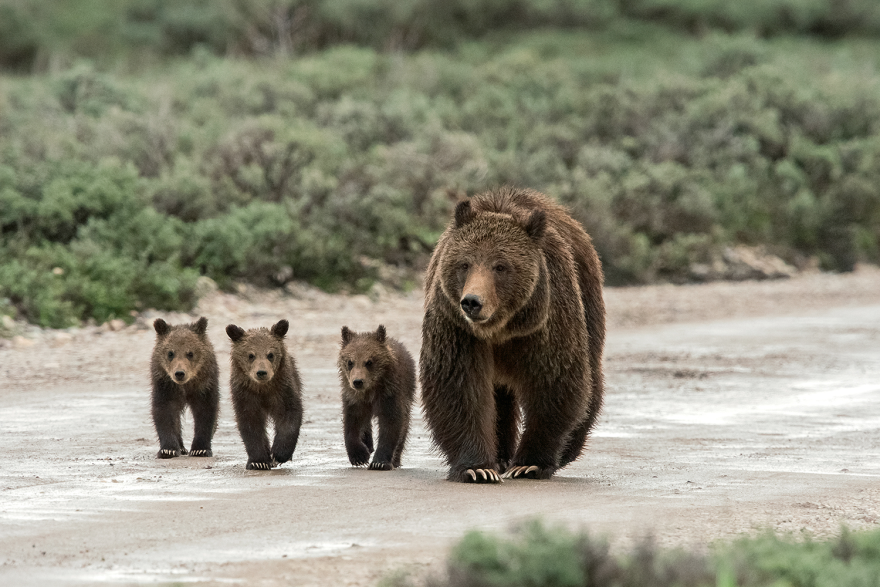News brief:
Conservative lawmakers in the West are reviving efforts to delist certain populations of the grizzly bear and gray wolf from the Endangered Species Act, and last week they made their case to remove federal protections before a U.S. House subcommittee.
The Subcommittee on Water, Wildlife and Fisheries hearing focused on three bills. The first, sponsored by Matt Rosendale, R-Mont., would direct the U.S. Fish and Wildlife Service to delist the grizzly bear in the Northern Continental Divide Ecosystem in northwest Montana. Another, sponsored by Harriet Hageman, R-Wyo., would do the same for grizzlies throughout the Greater Yellowstone Ecosystem. Wildlife managers say there are more than 1000 grizzlies in both areas.
Hageman’s bill would also prohibit future legal challenges to any delisting effort. Fish and Wildlife has tried twice to turn over management of the Greater Yellowstone grizzly to the states – once in 2007 and again in 2017 – but federal courts overturned those decisions.
Brian Nesvik, director of the Wyoming Game and Fish Department, testified in favor of removing federal protections for the bears. He said the species’ growing population in Wyoming has led to increased conflicts with humans and livestock.
“Because existing habitats are nearly full, bears have displaced to non-suitable habitats including private lands, cornfields, towns and backyards,” Nesvik said. “The people who supported recovery and changed their lives to accommodate a thriving grizzly bear population are growing frustrated.”
The U.S. Fish and Wildlife Service is already reviewing these two grizzly populations. Idaho, Montana and Wyoming have petitioned the federal government to delist the species, and the agency said it will make a final decision in about a year.
Stephen Guertin, the agency's deputy director, testified against these bills, arguing they circumvent the Endangered Species Act.
“Each of these bills would put Congress in control of delisting species without the benefit of using the best available scientific and commercial information and without considering current conditions,” Guertin said. “These processes under the law ensure that the integrity of the important goals of the ESA envisioned by Congress 50 years ago are maintained.”
The third bill, sponsored by Lauren Boebert, R-Colo., would remove federal protections for the entire population of the gray wolf in the Lower 48. Wolves are currently managed by the states in Idaho, Montana, Wyoming, eastern Washington, eastern Oregon, and north-central Utah, but their status is controversial. Montana and Idaho have allowed aggressive wolf hunting and trapping in recent years, and environmental groups are calling to relist the species. Colorado residents, meanwhile, voted to reintroduce the gray wolf by the end of this year.
While Boebert said her effort is supported by ranching and farming interests across the Mountain West, multiple conservation groups in the region strongly oppose her bill – and the two others.
“These anti-science attacks on wolves and grizzlies are a cynical attempt to turn over management authority to states that have extreme predator-killing agendas and policies,” said Erik Molvar, a wildlife biologist and executive director of Western Watersheds Project.
Nesvik, meanwhile, said states like Wyoming have management plans that are consistent with conservation ethics and practices and have been approved by local wildlife managers.
This story was produced by the Mountain West News Bureau, a collaboration between Wyoming Public Media, Nevada Public Radio, Boise State Public Radio in Idaho, KUNR in Nevada, the O'Connor Center for the Rocky Mountain West in Montana, KUNC in Colorado, KUNM in New Mexico, with support from affiliate stations across the region. Funding for the Mountain West News Bureau is provided in part by the Corporation for Public Broadcasting.










